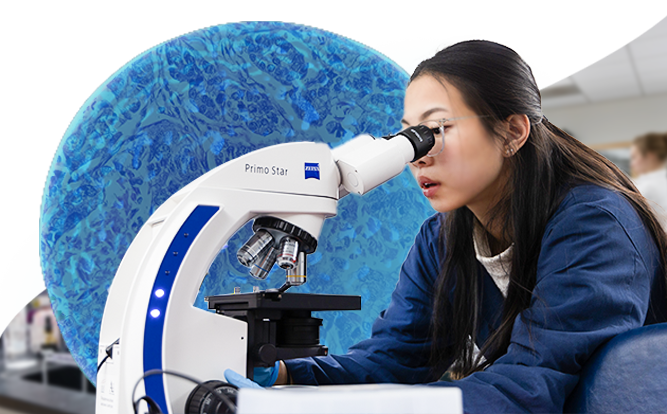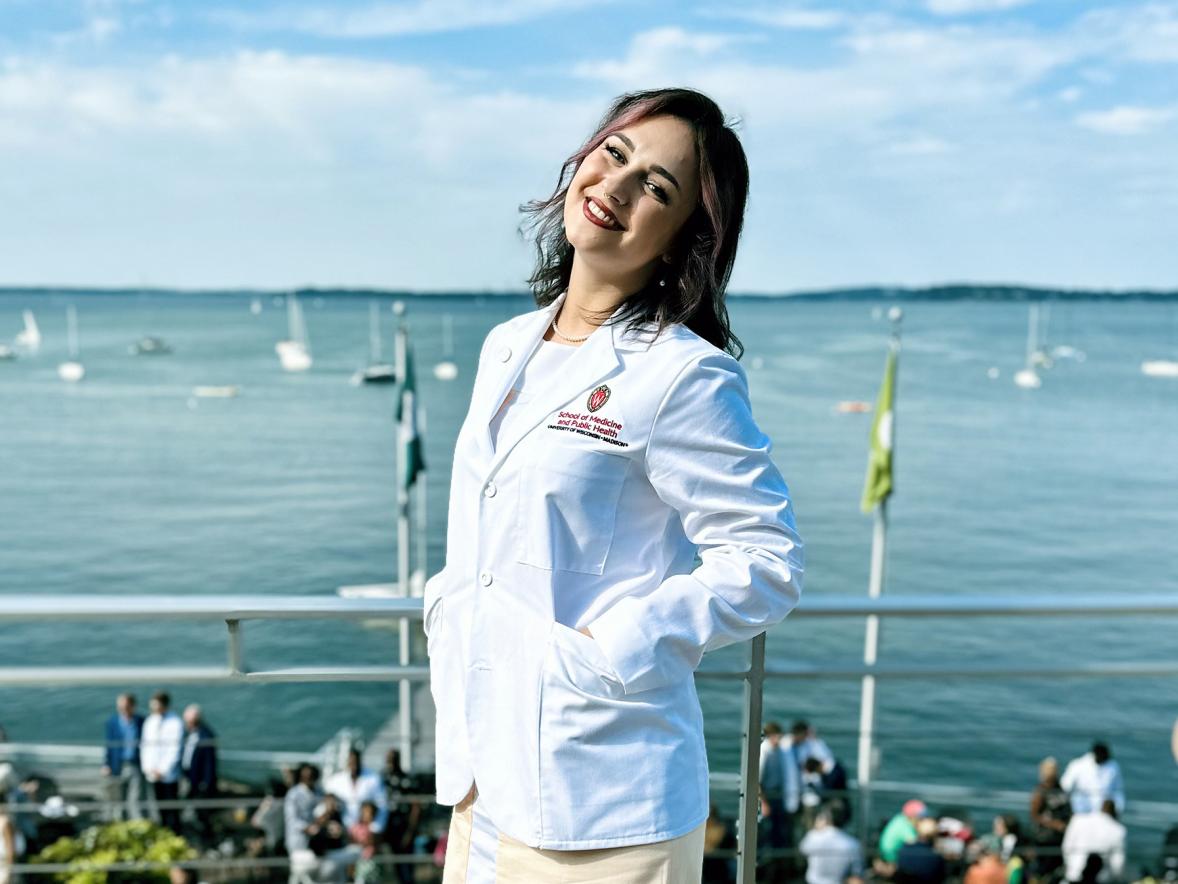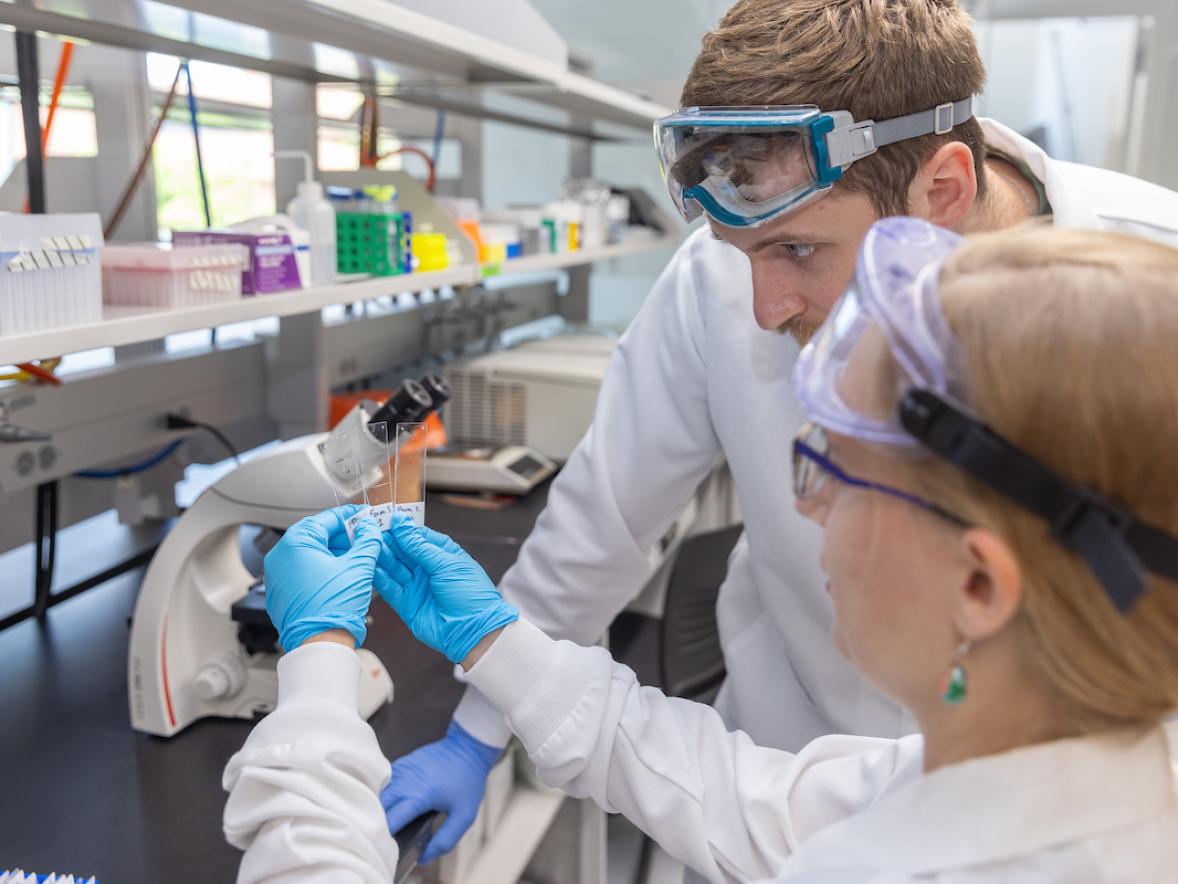Research & Real-World Learning
UW-Stout's Bachelor of Science (B.S.) in Biology merges theoretical foundations with hands-on scientific inquiry. Students in the program engage in an array of laboratory and fieldwork experiences, ensuring practical application complements academic exploration. The curriculum confronts societal issues with tangible solutions, preparing you to make significant contributions in various sectors of biology. Moreover, the program provides opportunities to collaborate on research initiatives with faculty, further enhancing your experiential learning.

Career-Defining Curriculum
Our curriculum bridges traditional biology education with modern, career-focused tracks. Our coursework, coupled with hands-on research, lays a strong foundation for immediate entry into the workforce or further academic pursuits.
Program Highlights
- Curriculum for Career Success: The Biology program's core courses cover essential areas, including Genetics, Cell and Molecular Biology, Organismal Biology, Ecology, Biostatistical Analysis, and Scientific Communications, equipping students with foundational knowledge and skills for the field.
- Lab-Based Learning on Day One: Our program engages students with hands-on laboratory work and field studies right from the start. You’ll encounter real-world challenges, ensuring a seamless blend of knowledge and action.
- Applied Research & Real-World Impact: Engage in original research that addresses pressing issues in immunology, genetics, bioengineering, and ecosystem dynamics. Our program fosters a problem-solving mindset, encouraging you to push the boundaries of innovation in biology.
Use the Request Information form to receive a program summary and learn more about the Bachelor of Science degree in Biology.
Request Information
Do More in Our Industry-Standard Labs
Within our labs and facilities, you'll have the opportunity to engage with high-tech equipment.
- Rajiv & Swati Lall Microbiology/Biochemistry Lab
- Molecular Biology and Biotechnology Labs
- Histology Lab
- Cadaver Lab
- Zebrafish Genetics Facility
- Natural History Collections
- Jarvis Hall Greenhouse
Current Applied Research
- Immunology, multiple sclerosis, and zebrafish models of human disease
- Population modeling and genetics
- Fermentation, bioengineering, and synthetic biology
- Restoration and habitat management
- Wetland, forest, aquatic, and agricultural systems dynamics
Professional Internship Placements in Biology
Take your education into industry and earn while you learn through UW-Stout’s award-winning Cooperative Education & Internship Program (CEIP) and other placements. Unlike traditional internships, our professional paid and pro bono credit-earning experiences connect you with leaders in your field, including Fortune 500 employers, impactful non-profits and government agencies, to ensure you’re set up for success long before you graduate. More than a third of Stout students accept positions after graduation with their internship employer.
Recent Internship Employers
- Animal House Pet Clinic
- Burnett Medical Center
- Club Creek Science Camp
- Marshfield Clinic Health Systems
- Mayo Clinic Health System
- Merieux Nutrisciences
- OrthoIllinois Rehabilitation
- University of Rochester Medical Center
Select Internship Position Titles
- Certified Nursing Assistant
- Microbiology Technician
- Pharmacy Intern
- PRN Rehabilitation Tech
- Research Assistant
- Summer Camp Counselor/Instructor
- Vet Tech Assistant
Our curriculum provides the foundation for entering the workforce and pursuing further training opportunities. Infused throughout the curriculum are opportunities to pursue original discovery using the scientific method. Our students are trained to communicate effectively and apply fact-based decision-making to areas of public policy and societal need. Our classrooms involve hands-on opportunities to develop skills in original research in small group settings. Become an innovator while changing lives. Earn a Biology degree at UW-Stout!
Learning Outcomes
Upon completion of the program, students will be able to:
- Apply biological concepts to address real-world problems.
- Design, conduct, analyze, and interpret scientific studies.
- Employ quantitative approaches to make evidence-based decisions.
- Communicate biological concepts effectively.
- Demonstrate professionalism and career-readiness.
The program's coursework, lab work, instrument training, and research will prepare you to enter the workforce or pursue further education in a variety of fields.
- Medicine, Dentistry, Pharmacy, Occupational/Physical Therapy, or Veterinary Medicine
- Biomedical Sciences, Neuroscience, Physiology, Microbiology, or Immunology
- Conservation Biology, Organismal Biology, Ecology, or Evolution







